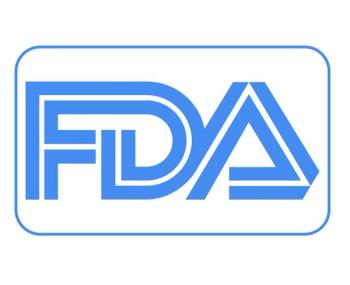
APA: Co-Morbid ADHD in Bipolar Adults May Respond To Non-Stimulants
SAN DIEGO -- When attention deficit hyperactivity disorder meets bipolar disorder in an adult, the diagnosis is hard and the course is poorly understood but the co-morbidity appears to exacerbate matters, researchers said here.
SAN DIEGO, May 24 -- When attention deficit hyperactivity disorder meets bipolar disorder in an adult, the diagnosis is hard and the course is poorly understood but the co-morbidity appears to exacerbate matters, researchers said here.
A systematic review of rates of bipolar disorder and ADHD in adults revealed that co-morbidity ranges anywhere from about 5% to 47%, reported Aliza P. Wingo, M.D., and S. Nassir Ghaemi, M.D., M.P.H., of Emory University in Atlanta.
But patients with the co-morbid conditions may benefit from the addition of bupropion (Wellbutrin) to their antimanic agents, said Dr. Wingo, who co-authored the study with Dr. Ghaemi.
Co-morbid bipolar disorder and ADHD makes the treatment approach somewhat tricky, Dr. Wingo said at a poster session at the American Psychiatric Association meeting here.
"We would recommend that the mood symptoms be attended to first," she said. "So we would treat the mood symptoms until the patient is euthymic, and then we reassess whether the patients have adult ADHD. If they do have adult ADHD, then we recommend antidepressant like Wellbutrin because it has low manic switch rates, and seems to be somewhat effective in adult ADHD, and maintain the patient on mood stabilizers."
She and Dr. Ghaemi conducted a systematic review of the literature to examine the validity and clinical implications of co-existing adult ADHD and bipolar disorder, with a focus on the rate of comorbidity, phenomenology, course of illness, family history, and treatment.
They searched the usual databases, including Medline, Embase, PsycInfo, and Cochrane, using the keywords manic, bipolar, attention deficit hyperactivity, and adult.
They identified a total of 12 studies, with overlapping areas of interest. Seven of the studies looking at rates of co-morbidity, four studying phenomenology (overlap of symptoms, suicide attempt, violence, other comorbid psychiatric illnesses, etc), three looking at course of illness, two on heredity, and one on response.
Among studies of adults with bipolar disorder, the co-morbidity rates of ADHD ranged from 9.5% in a study of 919 patients, to 21.2% in a study of 3,199 patients.
Among studies with adult ADHD samples, the authors reported that the co-morbidity rate for bipolar disorder ranged from 5.1% in a study of 79 patients, to 47.1% in a study of 51 patients. In the largest sample, with 3,199 patients, the co-morbidity rate of bipolar disorder in adults with ADHD was reported to be 19.4%.
In the studies of phenomenology, the authors found that there was broad overlapping of symptoms according to diagnostic criteria for each disease. For example, patients with ADHD are said to "talk excessively, while those with bipolar disorder are said to be "more talkative than usual." Adults with ADHD are said to be "easily distracted/jumps from one activity to the next," while bipolar disorder patients are said to have "distractibility or constant changes in activity or plans."
Non-overlapping symptoms of adult ADHD include forgetfulness in daily activities, difficulty organizing tasks and schedules, losing things and avoiding sustained mental effort. In contrast, distinct symptoms of bipolar disorder include inflated self-esteem/grandiosity, increase in goal-directed activity, flight of ideas, and decreased need for sleep.
The studies looking at course of illness indicated that the course in patients with co-morbid conditions is more severe than that of the bipolar disorder alone, with episodes of mania occurring in 41% of patients with both bipolar disorder and ADHD over their lifetime, versus 30% in those with bipolar disorder alone (P
Newsletter
Enhance your clinical practice with the Patient Care newsletter, offering the latest evidence-based guidelines, diagnostic insights, and treatment strategies for primary care physicians.

































































































































